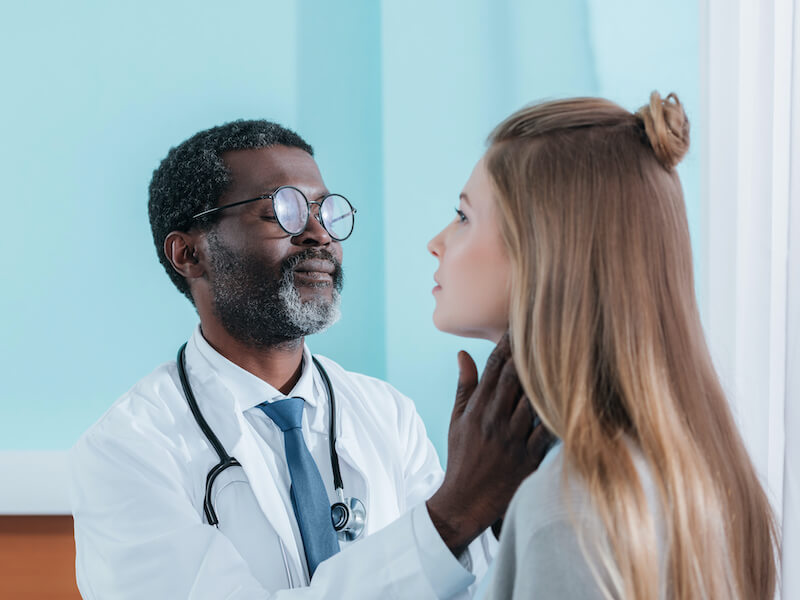
Oropharyngeal or oral cancer is diagnosed in more than 50,000 individuals every year. And unfortunately, oral cancers have a fairly high rate of mortality. Not all, but most of these are individuals older than 60.
The mortality rate isn’t caused by oral cancer being especially aggressive. These cancers, instead, are difficult to detect because they’re not obvious. In many circumstances, oral cancer isn’t discovered until it has reached advanced (and more difficult to treat) stages.
Oral cancer is usually quite treatable when detected early. Keeping an eye out for early indications of oral cancer is one of the best things you can do.
Oral cancer – some early signs
The best way to detect the early signs of oral cancer is to schedule an appointment with us. A range of types of cancer can be identified by our screening process.
Between visits, there are a few signs to watch for. Here are some of the most common early signs of oral cancer:
- Trouble swallowing.
- Patches of white or red tissues in the mouth. The white tissue is known as leukoplakia and the red tissue is called erythroplakia. Usually, these patches are nothing to be concerned about, but they could be an early indication of possible cancer in some cases.
- Difficulty moving your jaw, such as when you’re speaking or chewing.
- Loose teeth. If you have loose teeth that aren’t caused by dental or hygiene concerns (your dentist or periodontist will be able to tell whether that’s the case or not), you should see a doctor.
- Numbness, tingling, or loss of sensation in the lower lip.
You should also see someone if you feel like you have something stuck in your throat (like a growth), especially if this feeling is consistent.
When you go to an oral cancer screening, what happens?
We will take a good look inside of your mouth and pay particular attention to any white or red patches. That’s because these red and white patches can develop into lesions, and lesions can ultimately become cancerous.
In most cases, a visual assessment will be sufficient. But if we discover some tissue that is suspect, we may need to perform a biopsy.
How can I stay healthy?
Here are some situations that will make cancer more likely:
- Poor nutrition. Some evidence indicates that including fruits and vegetables in your diet can lower your risk of developing cancer.
- Family history. If you have a family history of oral cancers, your risks are going to be elevated.
- Excessive drinking. Alcohol has been associated with cancer. Moderating your alcohol consumption (especially when that drinking is coupled with tobacco use) can help decrease your risks.
- Tobacco use. Smoking tobacco products can substantially increase your risk of developing a wide range of cancers, including oral cancer.
Your exposure to the sun should be reduced: Extended and prolonged exposure to the sun can increase your chances of getting lip and skin cancer.
Get routine screenings
The best way to help minimize your chance of a negative result from oral cancer is to schedule an appointment with us. With routine screenings, the chances are better that we will be able to detect any possible cancers early, before they spread or become too advanced. This can dramatically improve your prognosis.